




May 2024
Dear Colleagues,
2024 will mark 10 years since the Department of Sociology at SHSS started an undergraduate programme alongside the PhD programme. In this one decade, our milestones have been rewarding and memorable. Our UG students have reached reputed universities, worldwide, for higher degrees, and they stand tall amongst their peers Others have gone onwards to various paths, making our presence felt in many environments. Our PhD program has grown in strength, and we are now proud of a talented, committed community of young researchers who are engaged in concerns crucial to the world we inhabit. A couple of them have been awarded field work grants from the top anthropological funding body in the world and they are the first few in the South Asia region. In addition, our PhDs have been part of prestigious conferences and are also now in academic positions in stellar institutes and universities in India and abroad. Our faculty contributes to the energy and commitment of the school we share. The conferences, lectures, projects that we have participated in, as well as our publications are a testimony to our continuing writing and research This year, we have also initiated and will anchor a long-term relationship with ICAS:MP (M.S. Merian - R. Tagore International Center of Advanced Studies, Metamorphosis of the Political) and Max Weber Stiftung which, we hope, will lead to stimulating discussions and unique work projects between us at SHSS and colleagues in Germany. In this inaugural newsletter, I am delighted to invite you to join us as we remember a year, 2023-24, at the department. We look forward to another year of energizing research and vibrant classrooms.
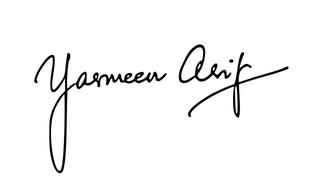
On the 15th of September, 2023 Professor David Scott delivered a compelling keynote address at the Indian Habitat Centre, marking the end of the Autumn school organized by the Centre for the Study of Developing Societies (CSDS) and the International Centre of Advanced Studies (ICAS). The central theme of the Autumn school was "Decolonization/Decolonial: Thinking across Disciplines and Geo-Histories," and Professor Scott's keynote revolved around this overarching theme. His lecture was a part of an ongoing project titled "Irreparable Evil: An Essay in Moral and Reparatory History." This project challenges and problematizes the notion of reparative justice, especially in addressing the immense moral wrong of slavery. The essence of his ideas was to critically examine the limitations of liberal rights-based arguments that underpin calls for reparations, aiming for reconciliation with the historical trauma of slavery Professor Scott delved into the paradoxes of seeking justice for the deep-rooted moral wrongs of slavery. He emphasized the insufficiencies of using liberal rights-based arguments to justify reparations, suggesting that the magnitude of the injustice renders complete reparation impossible In this thought-provoking lecture, Professor Scott juxtaposed the idea of reparation with Walter Rodney’s seminal work, "How Europe Underdeveloped Africa" (1972). He posed fundamental questions, urging reflection on the relevance of Rodney's text in understanding postslavery societies and the reciprocal demands between this text and the present. He also highlighted the pressing need to acknowledge the loss of the old historical modernist concept of revolution, alongside the potential gain from the radical idea of reparation to address the colonial and slave past. Moreover, he stressed the importance of challenging the prevalent conception of reparation that merely upholds the existing social and economic structures in post-slavery Caribbean societies. In conclusion, Professor Scott argued for a recognition of the inherent impossibility of fully rectifying a wrong of such magnitude when advocating for urgent reparations, emphasizing the critical need to navigate the complexities of addressing historical injustices.
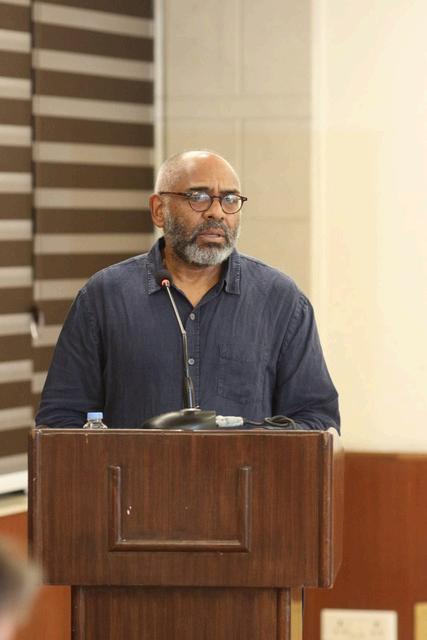
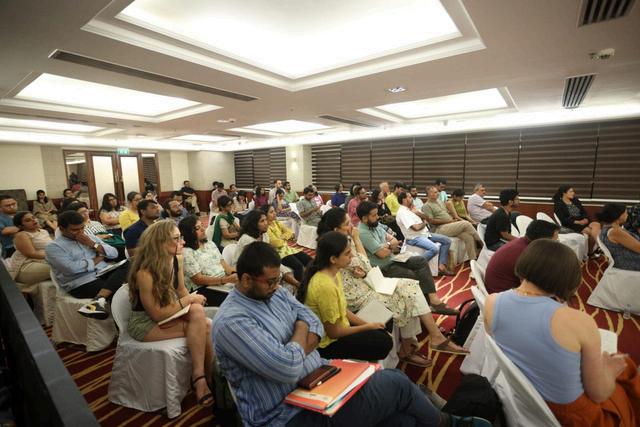


Friday, 20th October: A meaningful collaboration between the Delhi School of Economics, Ashoka University's Department of Sociology, and The Department of Sociology, Shiv Nadar Institute of Eminence brought together renowned scholars and students for an insightful lecture on research proposal development The event featured a talk by Dr Danilyn Rutherford, President of the Wenner Gren Foundation for Anthropological Research, who shared invaluable insights into the art of creating a compelling research proposal The highly anticipated lecture, held at the Delhi School of Economics, aimed to equip attendees with the essential tools and methodologies necessary to create well-structured and effective research proposals. The session was designed as a public lecture, where students and researchers from various universities were present. Drawing from the examples of different grant research proposals, Dr. Rutherford explained how conceptual frameworks as well as practical strategies, can be incorporated successfully into the process of proposal writing.
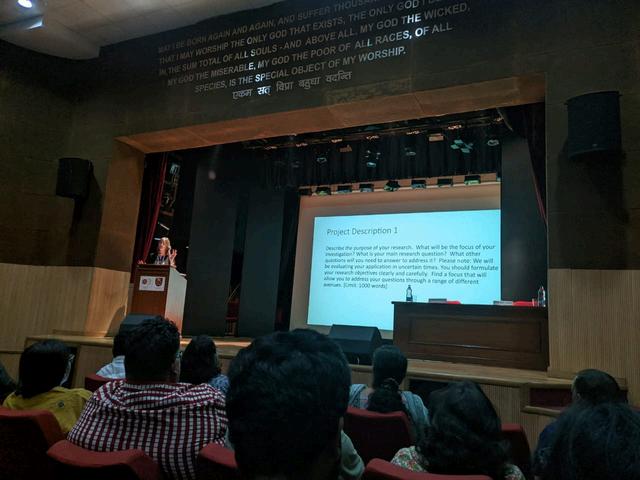
Following an engaging morning session open to students and attendees from diverse institutions, the post-lunch segment was thoughtfully dedicated to the professors and research scholars from the collaborating departments. The session provided a unique platform for scholars to delve deeper into the theoretical and practical concerns prevalent in the field of sociology and social anthropology within the Indian context Professor Deepak Mehta from Ashoka University, Professor Sudha Vasan from Delhi School of Economics, and Dr. Ravi Nandan Singh and Dr. Subhashim Goswami from Shiv Nadar Institute of Eminence led the session with their valuable comments on the matter. The session brought in various arrays of questions from different scholars engaging with sociocultural anthropology in the country.

Thursday, 26th October: Renowned social theorist and science and technology scholar Dr. Maurizio Meloni, currently an associate professor of sociology at the Alfred Deakin Institute of Citizenship and Globalization, Deakin University, Australia, visited the department of sociology at Shiv Nadar Institute of Eminence. Dr. Meloni's visit was marked by two insightful events, catering to a diverse audience from different disciplinary orientation. In the morning session Dr. Meloni attended and delivered a thought-provoking seminar lecture on Norbert Elias’s ‘The Civilizing Process’ (1939), in which he discussed Elias’ notion of process sociology, which contains enormous theoretical potential and is still influential in understanding emotional self-control of manners. By highlighting methodological challenges in Elias’s framework, Dr. Meloni was able to introspect and point towards a nuanced understanding of the history of manners and body practices based on managing body fluids and flows. The seminar was enriched by the presence and engagement of professors and students from different departments at the university. The event also attracted some students from Jawaharlal Nehru University, New Delhi.
The afternoon session was designed as a workshop around the contribution of Dr. Meloni’s work across multiple disciplines, which turned out to be an immense conversation between different disciplinary frameworks including sociology, political science, and biology/microbiology. Professor Yasmeen Arif chaired the session with Professor Harish Naraindas, Professor at the Center for the Study of Social Systems, Jawaharlal Nehru University. The workshop began with the critical interventions of students from different departments towards Dr. Meloni’s work. Aditya Trivedi (Ph.D. Scholar, Virology Lab, SNS, SNIoE), Vasundra Venkatesh (Ph.D. Scholar, Sociology, SNIoE), Manjima Anjana (Ph.D. Scholar, IRGS, SNIoE), Raghavi Rao (B.Sc Biotechnology, SNS, SNIoE) and Eshan Sharma (B.Sc Biotechnology, SNS, SNIoE) have presented their engagements with Dr Meloni’s writings and how they interact with their respective field of inquiry. In his response, Dr. Meloni underscored that rather than confirming the top-down approach of the modern state on the individual, his insistence is on a more global, bottom’s-up approach to the human body in which the practice and technique of permeability of the body become the central position.

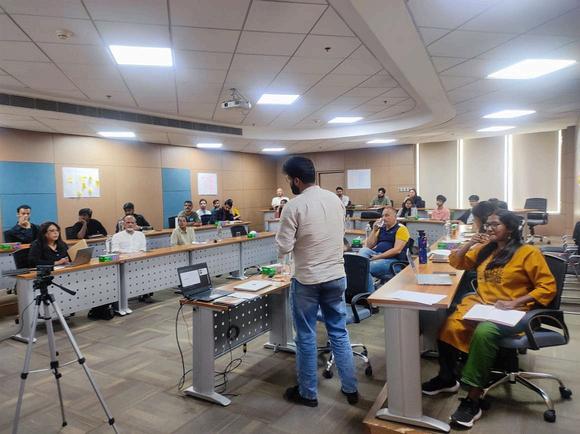

Prof. Harish Naraindas has joined the Department of Sociology, SNIoE, as an Honorary Professor.

Harish Naraindas is a sociology professor at Jawaharlal Nehru University and an honorary professor at Deakin University He has also taught at the University of Iowa, the University of Heidelberg, and the University of Freiburg. His research focuses on the history and sociology of science and medicine, and he has published extensively on topics such as tropical medicine, smallpox, Ayurveda, spa medicine, pregnancy and childbirth, global mental health, and anthropological explanations of the non-human. Currently, he is working on projects related to Ayur-Genomics and P4 medicine, perinatal loss and bereavement, and a general theory of medicine and alternative medicine worldwide. Prof. Naraindas has co-edited several books and special issues, including Healing Holidays and Asymmetrical Conversations. He holds a Ph.D., MPhil, and MA in sociology from the Delhi School of Economics, University of Delhi, as well as a B.Com from Madras Christian College. He has held academic appointments at Jawaharlal Nehru University, the University of Iowa, and the University of Delhi.
Prof. Naraindas’s affiliation with the department will strengthen the existing specialization of (medical) anthropology of Body and Mind in the department.
Dr. Serena Bindi has joined the Department of Sociology, SNIoE, as an Honorary Fellow

Serena Bindi is an associate professor of Anthropology at the University of Paris Cité. Her research is at the intersection of medical anthropology and religious anthropology among urban and rural communities in the Himalayan state of Uttarakhand, in northern India. She has created and coordinated several collective projects dealing with the intersections of religion and health: the international IDEX project "Body" (2015-2018); the research seminar "Health and religion: contemporary debates" (2015-2020); the research programs "Healing and Divination" (2014- 2018) and "Health, Body and Sensory Worlds" (2019-2022). She currently directs the research program "Phantoms or fantasies? Experiences of Loss in Changing Therapeutic Contexts (India and Nepal)" (2020-24) funded by the French National Research Agency (ANR) . She has edited volumes and has many reputed publications to her credit, including a special issue of the academic journal Mondes Contemporains (2012), entitled “Event and Illness” She obtained her Ph.D. in Social Anthropology and Ethnology from EHESS Paris France/University of Siena Italy, 2009 and was a postdoctoral research fellow at the Fondation Maison de Sciences de l'Homme in Paris (FMSH, 2011).
Dr Serena Bindi's affiliation with the department will further help build and strengthen existing specializations in sensorial methodologies, anthropology of death, grief, and mental health.

Third year PhD scholar published a book chapter titled “The magic of Hyderabad's Nahari” in a book published by PanMacmillan and edited by Siobhan Lambert Hurley, Tarana Khan & Claire Chambers, titled “Forgotten Foods: Memories and Recipes from Muslim South Asia”.
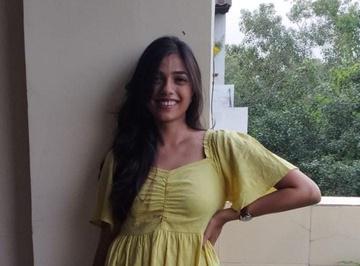
Third year PhD scholar published an article titled “Battles Over Social Justice, Caste, and Neo-Liberalism: A Review of ‘The Battle for IITs: A Defense of Meritocracy’ in Engineering Studies, Vol 15, No.2.
Second year PhD scholar presented a paper titled ‘“Swear to Allah”: Oath-taking, Dispute Settlement, and Islamic Legal Authority in Kodinhi Juma Masjid in Kerala’, at the Middle East Studies Association (MESA) Annual Meeting 2023, held at Montreal, QC, Canada.
Second year Ph.d scholar presented the paper ‘“Bombay” in the imagination of a poet: The Artist as Witness, Art as Placemaking, in Arun Kolatkar’s Kala Ghoda Poems’ in the 27th European Conference on South Asian Studies (ECSAS 2023) in Turin, Italy. The paper explores the “city in art”, through the poetic imagination of bilingual 20th century poets in India
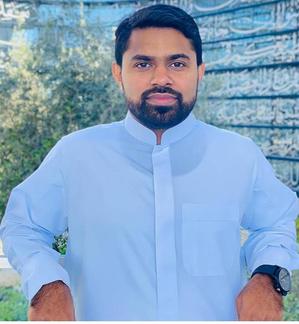
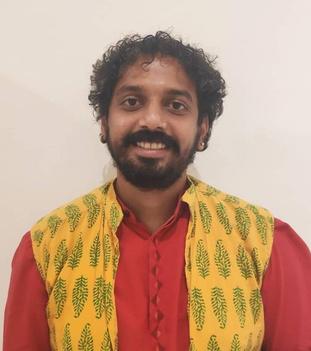

Fourth-year UG student Presented a paper titled “Environment and Anthropocene,” at the One Day National Interdisciplinary Conference on Environment: Issues and Challenges 2023 held at Wardha, Maharashtra. She also presented a paper, “SDGs and Question of Global Justice,” at the International Conference on “Social and Political Institutions, Human Rights and Global Justice: Perspectives from India and Europe” held on 9th and 10th October 2023 at Amity University, Uttar Pradesh.

Third year PhD scholar has published a paper in Yeshe: A Journal of Tibetan Literature, Arts and Humanities. The research paper traces the larger context of evolving human-snow leopard connection by following the socioeconomic developments in Ladakh and changes in tourism


Ayesha was awarded the Wenner-Gren Foundation's Dissertation Fieldwork Grant for her doctoral research project titled "The Study of the Social Life of Frankincense in Oman." Wenner-Gren Foundation is one the leading funders supporting scholarship in the field of social anthropology. Ayesha is the second student at the Department of Sociology, SNIoE, after Padma Rigzin to receive a generous fieldwork grant from the Wenner-Gren Foundation.
Ayesha's doctoral research explores the materiality and social life of frankincense, an aromatic resin harvested from the Boswellia Sacra trees unique to a specific micro climate of Southern Arabia and East Africa Frankincense can help us understand the entanglements of people, environment, and trans-regional histories of migration and trade in the Indian Ocean region. Her research builds on ideas of objects having a social life and aims to contribute to debates in the study of environmental ecologies and sensory studies. Ayesha was based in Salalah as part of her fieldwork in the Dhofar region of Oman.
Prof. Yasmeen Arif’s edited volume coming soon

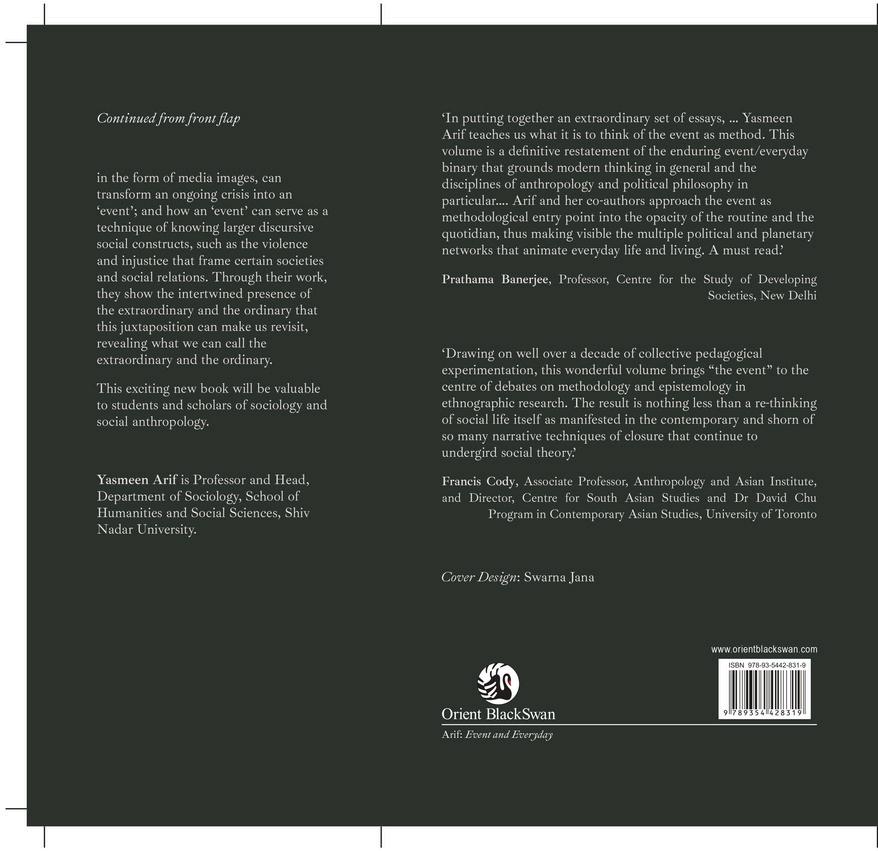

Arjun's distinct house, covered by a white tent, hosted mourners awaiting a final glimpse of his father Tragically, that morning, Arjun's father, who had faithfully delivered fresh milk and fruits for his son ' s wrestling training every day for a decade, passed away. The somber air was filled with women ' s lamentations as men readied for the last rites. Arjun, deeply anguished but tearless (after all, ‘he was a wrestler’), sat by his father's body, visibly carrying the weight of grief Despite his sorrow, he had to bid a brief farewell, to a national wrestling competition called a bitter yet necessary step in honoring his late father's dream
The one thing I personally was apprehensive of as a researcher in this field, which is especially susceptible to putting one into the limelight, was losing my privacy In the beginning, I was very hesitant to introduce myself and avoided meeting people in public. One day, my friend told me that his friend, who is a postgraduate in sociology and is from the locality, wished to see me. I refused at the first time, as I knew the person through social media, and I was worried about exposing myself. But later, I changed my mind and decided to meet him. That was the beginning of a friendship. Since then, he has been my interlocutor and dearest friend, who guided me through my fieldwork. At any time, whether it is midnight or early morning, within 10 minutes of my call, he will be in my room, often, with his home-cooked food. Often, I used to wonder, if this guy had never met me, how it would have affected my fieldwork! He used to tell me with a smile that the Sufi saint sent him to assist me!
My essay explores the privilege of locating a familiar sociality in the field. There is no better way to describe this than my own ethnographic encounters with the Hyderabadi-Shahri community in Salalah, Oman. Through my interlocutors, I met and established contact with networks of women from Hyderabad city married to Shahri men in Salalah and their children. I was warmly included in networks, with their own practices of sociality such as weekly picnics at a local park every Thursday after Maghreb prayers, ie after dusk The site of these weekly picnics became a space for me to locate a familiar space through a shared language (Deccani Urdu) and culture In many ways, my interlocutors and I are all embedded in routes of migration and flows of a sensorium that are located in larger structures of meanings that exist The presence of Hyderabadi women, and a researcher from the same city, all form a part of the social life of frankincense, that I wish to highlight in my essay

It was November I attended a week-long wildlife guide training program at Lungmar Remote Camp It was the first day of the program, and the class-based teaching program was over by around 3:00 p m In the class, resource persons spoke about different fauna and ecosystem relationships As part of the program in the afternoon, there was lots of landscape scanning with binoculars and spotting scopes to find a snow leopard And suddenly, someone shouted that snow leopards were there. One of the senior spotters, Mr. Gyalson from Tamachik, spotted a mother and cub. They were on the top of a snowy mountain and were unfazed by the chilly and windy mountaintop. They were admirable, to say the least. In addition, the baby was playing in the snow with her or his mother. They started walking down the mountain, and we could trace their descent for about 40 minutes. The baby would run fast down, hide behind a stone, and do a peekaboo to the mother, who would act surprised. All the people, trainees, and hosts were joyous, dancing like the baby snow leopard This was one of the memorable moments from my fieldwork because this was also the first time I saw snow leopards in the wild I grew up in the snow leopard territory, yet I never saw one That's why this moment was special All thanks to Mr Gyalson and the organizer, the Wildlife Tour Operator Association, and the Camp
The field can break your heart sometimes I was in IIT to attend a candlelight march for a student who had just committed suicide on campus. This marked the second suicide in a 3month period. It was dusk and as our little group was marching, we looked around to see how classes continued, students were running from lab to lab and barely glanced at us. That's when it struck me that the IIT problem is more complicated than when I started out my work I started to look for a theory to mend our broken hearts
“Whenever someone asks me about my undergraduate studies as a B. A Sociology student at SNU, I often smile at the person asking the question, almost as a smirk. As if to say, "Buddy, you have no idea what I have experienced". An undergraduate education worthy of being called an integrated B.A plus M.A, something which almost makes me feel as if I am wasting my time doing my M.A in Anthropology. It is but true; no other department would dare to go beyond their own imagination and expose their students to critical work and methodologies like our department did. But more importantly, we were a group of trustworthy and kind people who extended across batches, from senior to junior, complimented by a welcoming group of PhDs who were willing to treat us as equals. If you allow me to be a bit arrogant, I could go so far as to say that no other Department of Sociology in India could match the standard of education that we received in our department”

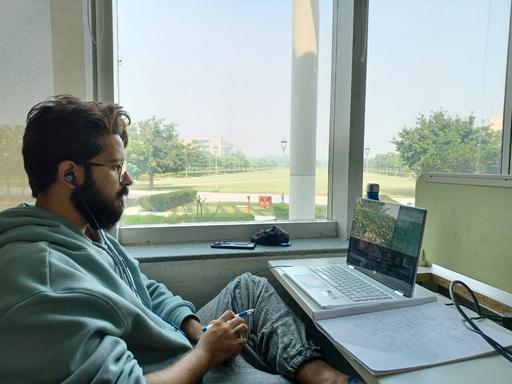
“My journey into academia was a revelation, coming from a background unfamiliar with the concept. The department's rigorous training not only deconstructed my perceptions of the world and myself but also molded these revelations into building blocks for my future. Starting as struggling students created spaces where we found enduring friendships and our voice. There is a profound quality in the way that casual conversations can become sites of constructive and critical thought that has pushed our imaginations above and beyond. Giving merit where it’s due, the department's pedagogy and perseverance in making academia accessible is hard to come by elsewhere”

“Manzar:
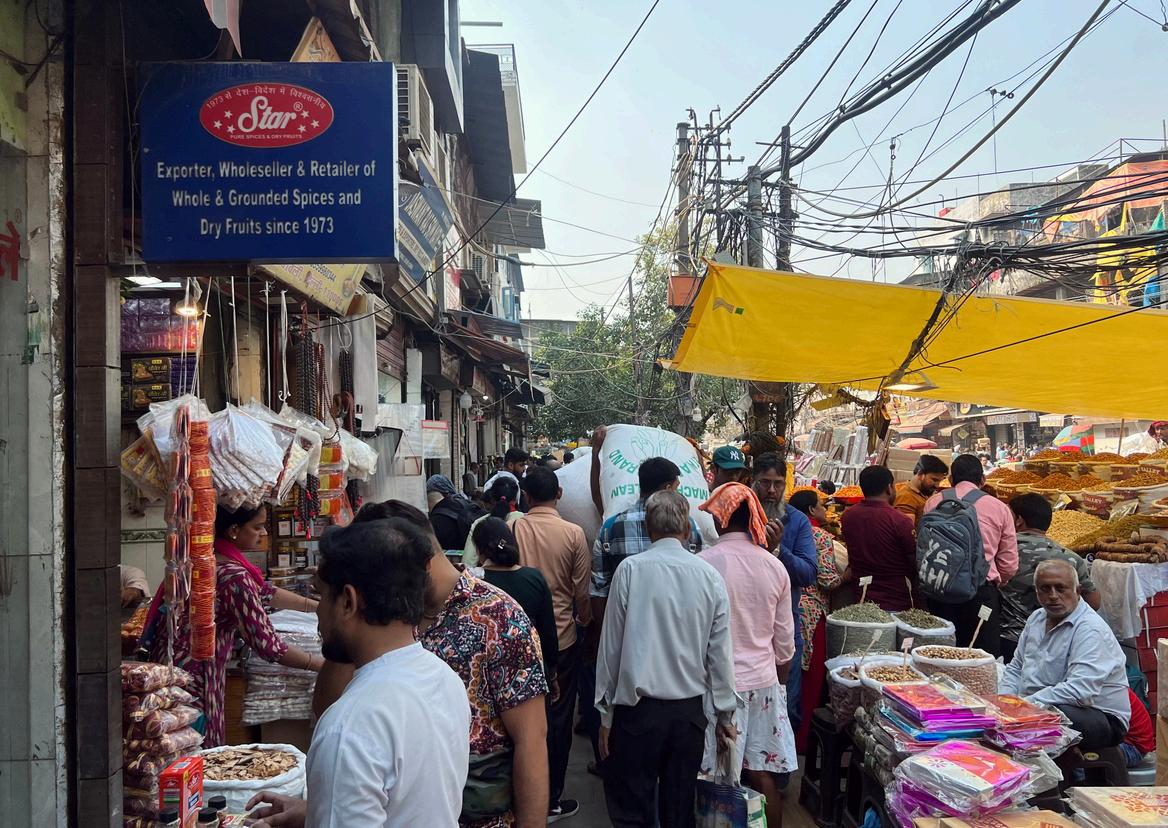
The idea of exchange and labour in the marketplace displays the complex web of intimate commercial and social relationships amongst cultural processes In vibrant, bustling markets such as those seen in Delhi, a feeling of community is established by the exchange of goods; through barter and trade, people negotiate identities and power These visuals encompass the intricacy of mundane interactions in a society focused on acquisition, echoing the theories of Émile Durkheim on social integration and the division of labour

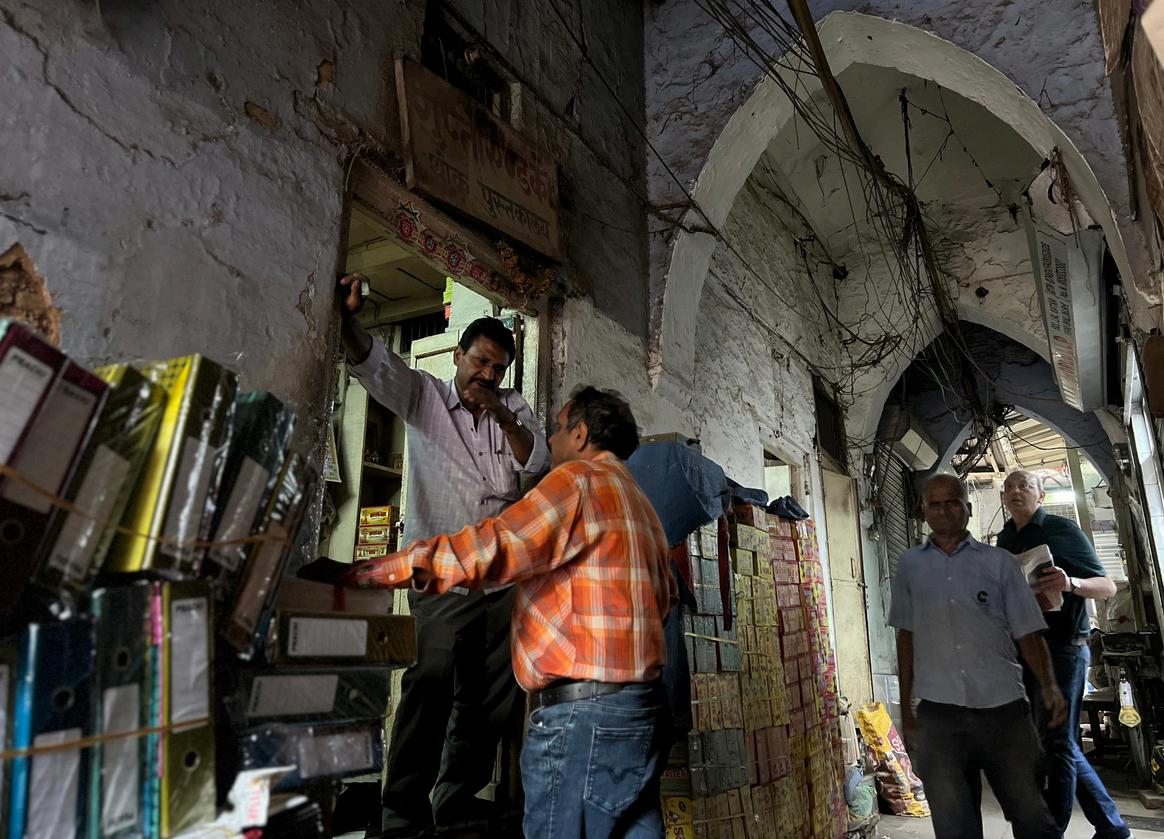
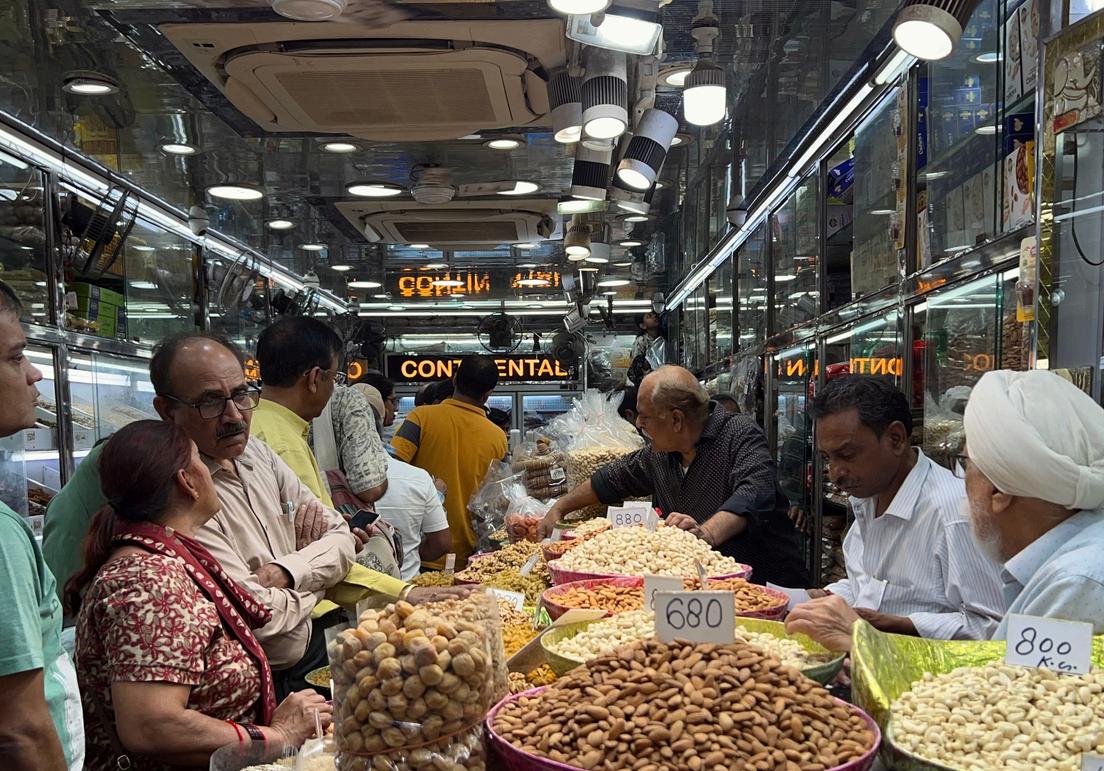


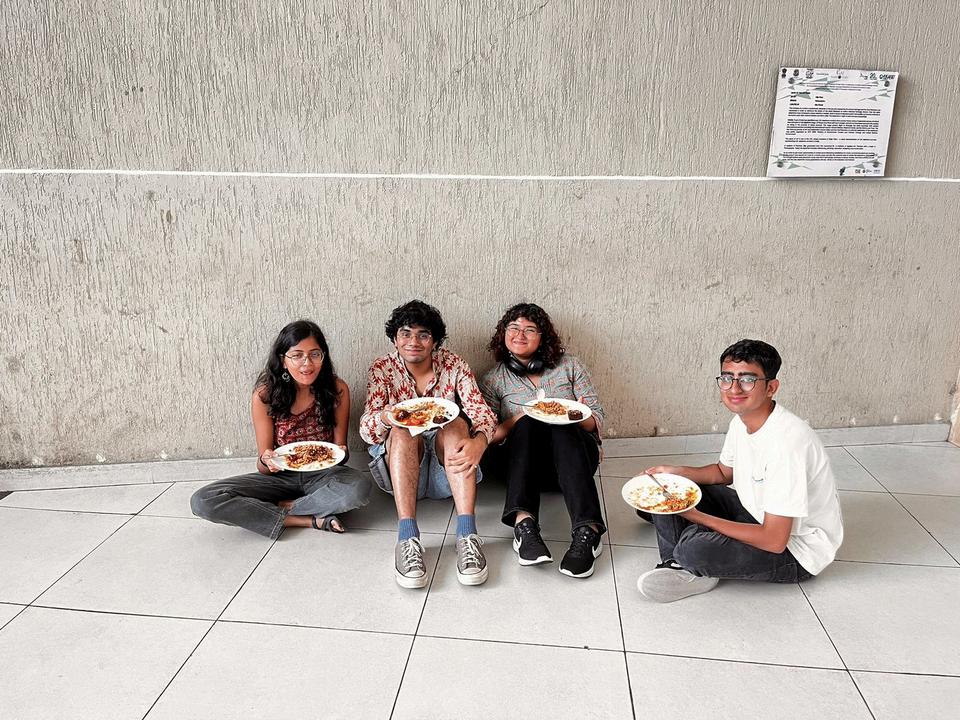

Right: The Totempole Core (2023-24) introduce themselves to club members at the Department Meet, Monsoon 2023, 21st September, 2023 (Photo Credit: Simran

 Left: Totempole, the Sociology Club, collaborates with Mnemon, the History Club, for the History Week (Photo Credit: Tanmay Pandey)
Batra)
Left: Students enjoy lunch at the Monsoon 2023 Department Meet (Photo Credit: Simran Batra)
Left: Totempole, the Sociology Club, collaborates with Mnemon, the History Club, for the History Week (Photo Credit: Tanmay Pandey)
Batra)
Left: Students enjoy lunch at the Monsoon 2023 Department Meet (Photo Credit: Simran Batra)


Left and Right: Students and professors say cheese! (Photo Credit: Simran


Photos of Dr. Sheila Jasanoff’s lecture at the first “Global Future Lecture Series” held at the Indian International Centre, New Delhi on 26th April 2023 The event was organized by the Department of Sociology, SNIoE, and the lecture was titled ‘Progress without Progressivism?-Engineering Futures in the 21st Century’. (Photo Credit: Anita Sharma)
Batra) Sumit Kumar
Sumit Kumar
17th-19th January: At the concluding session of the International Death and Grief Conference, Sarah Pinto remarked on the irony and difference invoked by the dead-alive coupling in the conference's title– 'Are the Dead Alive?' This irony and difference resulting from the sentence's grammatical structure also point out the generative space between the two concepts whose creative energy is yet to be fully harnessed by anthropology. The objective of the conference is not to chase the ontological questions related to death/dead and life/alive but to engage with the various processes, politics, and forms of life enabled by ever-changing concepts and practices related to life and death.
The inaugural session of the conference started with a non-traditional approach, immersed in the archive rather than going with the theme of customary rituals and religion. Aranav Sethi, a PhD scholar engaging with the clinical archive of dementia patients and case studies, found out in his work that the grieving and mourning of patients, captured in speech, is not an encounter with the other but the self itself, unlike the general trend in anthropology where mourning and grief is an act of stitching together the self and the other. On the other hand, Professor Sara Pinto, while looking at the colonial archive of hysteria patients in India, observed that the way the death of neonates and mothers appears in these archives expresses more than the rhetoric of bioproduction of social life by the state. She argues that one should critically explore the relations between different kinds of deaths and kinds of archives to reveal the unspoken socialities that never became a part of popular memory. Her archival investigations reveal how different forms of colonial medical record-keeping, due to their inherent sanitary nature or objective, flatten out the vibrant interconnected temporalities of bodily events, illness, life events, and death. Her work brings out the entanglements of bodies to each other and social and environmental conditions while reading about the deaths in the archive.
Dr. Devika Bordia’s paper explored another dimension of this necropolitics as she examined the shared, affectively charged reflective sovereignty of the Bhils and how it enables them to mourn as well as restore a sense of justice for the death of one of their own in Rajasthan. This shared reflection is inherent in the bios, where the state controls the meaning and construction of death. However, she demonstrates how it is also constantly shaped by indigenous rights discourses and their affective sovereignty. She argues that while the state interprets the body of the dead through a governmentalized regime, the reflexive sovereign reading of the body by the Bhils, on the other hand, is an act of the claiming of life. Be it through counter-assertions that go against the state's narrative or through the mourning by Bhils.
At this point, the theme of the conference moved away from legal and political readings of life and death towards the agentive capacities of body parts to invoke moral and ethical questions concerning cases of organ transplantation For instance, Dr Hans's work based on the donative practices in Nepal demonstrates how certain ontological qualities associated with the organ and moral constitution of the dead in the concerned community enable new social and institutional forms to emerge to keep the sanctity of the dead intact. For instance, in one case, the ‘hospital’ has been shifted inside the crematorium, but the religious rituals and medical procedures negotiated that space to perform their task at its best.
Carrying a similar texture, Dr. Ravi Nandan Singh's paper talks about the changing funerary practices and their implication on how the 'dead'- as contemporary social conditions of concept, practices, and materiality- have been received, lived, grieved, and perceived by the living. Drawing on the three funerary sites, Banaras, Vatican, and Denmark, Dr. Singh's work demonstrates that change in funerary practices is not simply reflection of theological change but these changes are shifts of form as well. As 'dead' is condition of social, its multiplicity brings together scientific, industrial, secular, civil, and climate change-influenced practices. These shifting forms have generative capacities that have unleashed different conceptualizations of personhood for the dead in the contemporary.

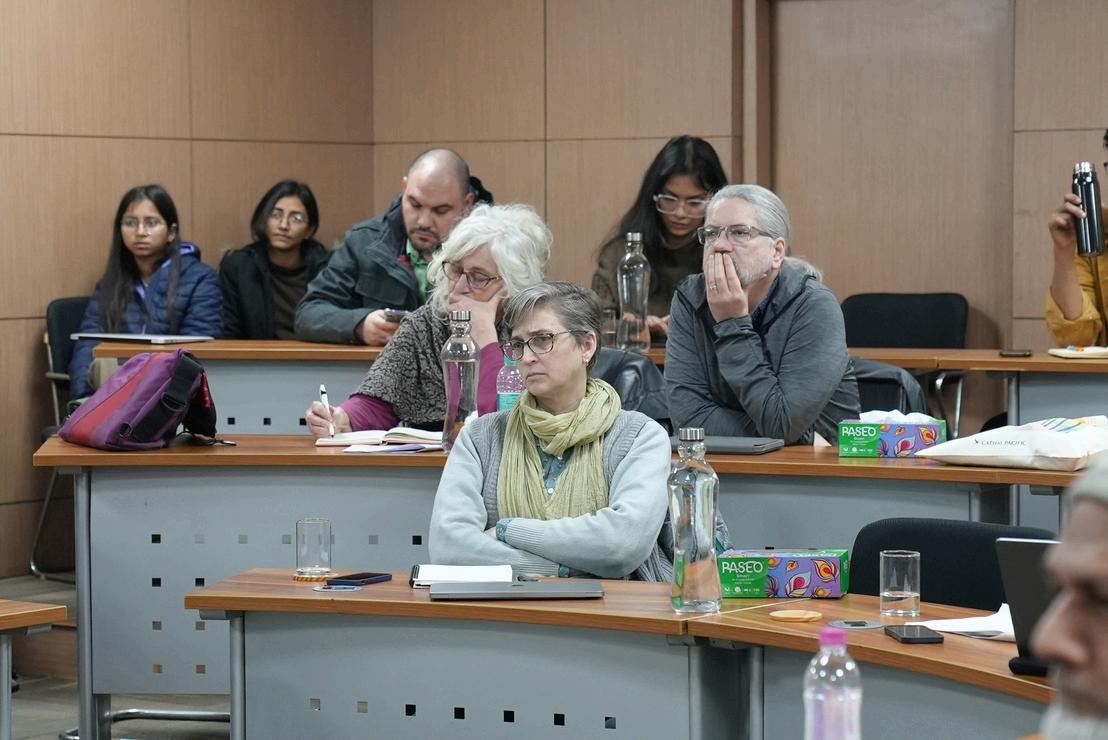



The conference concluded with final remarks by Professor Yasmeen Arif. She acknowledged the importance of the return of 'death and dead' in anthropology as such conceptualizations, in their own way, enable the politics of life. Overall, the conference successfully has revealed various sites and ways where people are constantly in conversation with the 'dead’ in their everyday life.
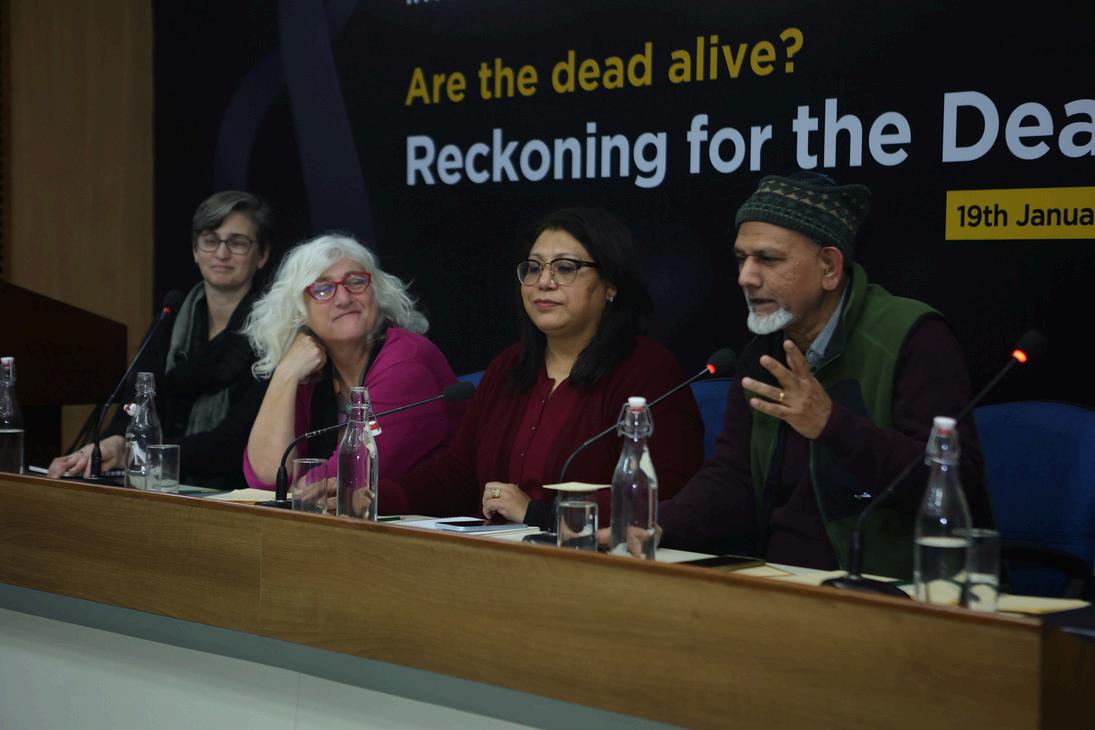
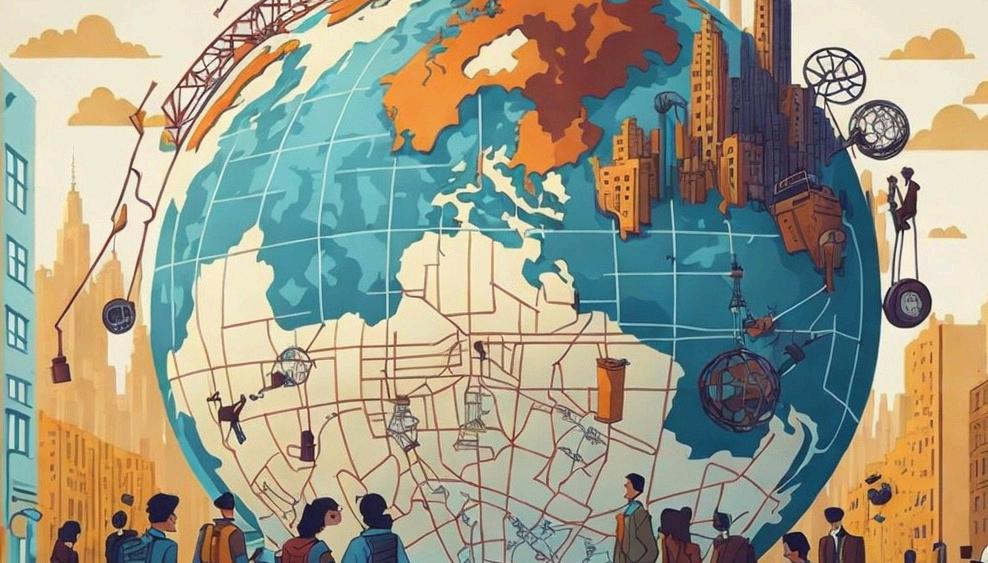

15th February
The Department of Sociology, Shiv Nadar University in collaboration with Department of Anthropology and Sociology, SOAS, University of London launches a Joint MA in Global Urban Sociology . This unique jointly-taught and jointly-awarded one-year MA between SOAS and Shiv Nadar IoE allows students to study in two premier institutions and two contrasting cities Students will receive rigorous sociological training as well as cultural immersion in the UK and India, in a partnership programme that combines student mobility with cutting edge research-led teaching. The programme welcomes a global cohort of students interested in academic training as well as in upskilling professional profiles. With the intent of supporting a vibrant classroom environment, we encourage applications from anywhere in the world
The vision of the programme content is to offer a rare classroom where globally informed debates will illuminate location sensitive concerns. This MA specifically seeks to foreground how social science knowledge can be deployed to both understand and tackle real-world issues in the context of the most significant transformation of the ways in which we occupy the planet, i.e. urbanization.
Term 1 (September-December)
at SOAS University of London
Term 2 (January to May)
Term 3 (June to September)
Dissertation
at Shiv Nadar Institution of Eminence Deemed to be University (Shiv Nadar IoE), IndiaSumit Kumar
Monday, 19th February: Shiv Nadar University was the venue for gathering faculties from the Social Sciences and Humanities South Asia (SHSS) and The M.S. Merian – R. Tagore International Centre of Advanced Studies (ICAS) on 19th February. The workshop, aimed at fostering collaborative research endeavors, commenced with opening remarks by Prof. Yasmeen Arif, Prof. Martin Fuch, and Antje Linkenbach.
Roundtable discussions:
1. Tackling Climate Change and Sustainability: Dr. Rajat Kathuria initiated discussions by dissecting the intricate politics surrounding climate change trade-offs and the imperative of social justice. Dr. Anita Sharma explored the intersection of pastoralism and modern Himalayan landscape usage, underscoring the overlooked wisdom of pastoralists in addressing regional climate challenges. During the discussion, she gave valuable insight from her work on the Bakarwal community. The last speaker, Dr. Saidalavi PC, brings on the changing fishing practices of Mappila fisher folks, emerging social relations, and politics of climate change.
2. Engaging with Law, Politics, and Theory- Part 1: Prof. Vidhu Verma and Prof. Beatrice Renzi focused on marginal identities, social justice, distributive justice, and the universality of such concerns. On the other hand, Prof. Hartmut Rosa talked about acceleration as a way of being in this modern time. From being the acceleration of social change, technological acceleration and the pace of life sets the very condition of being.
In the end, Prof. Rajeev Bhargava critically analyzed the much-celebrated term diversity in chair Prof Yasmeen Arif




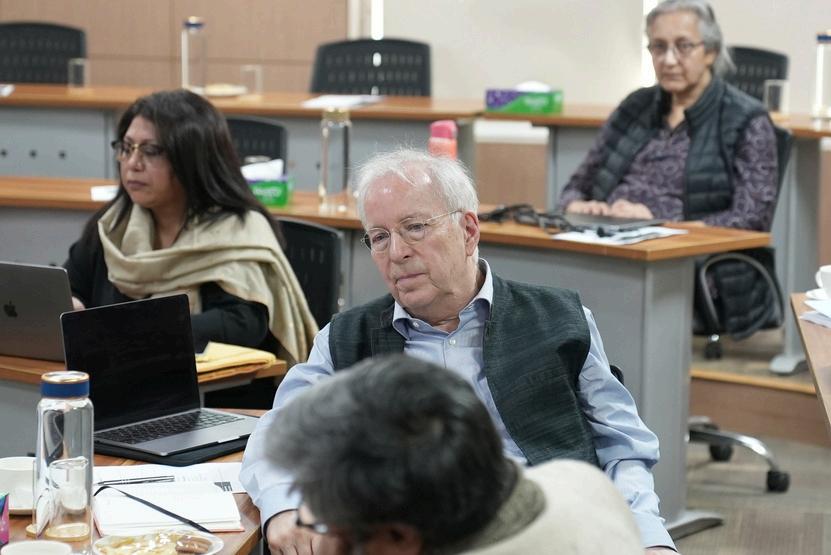
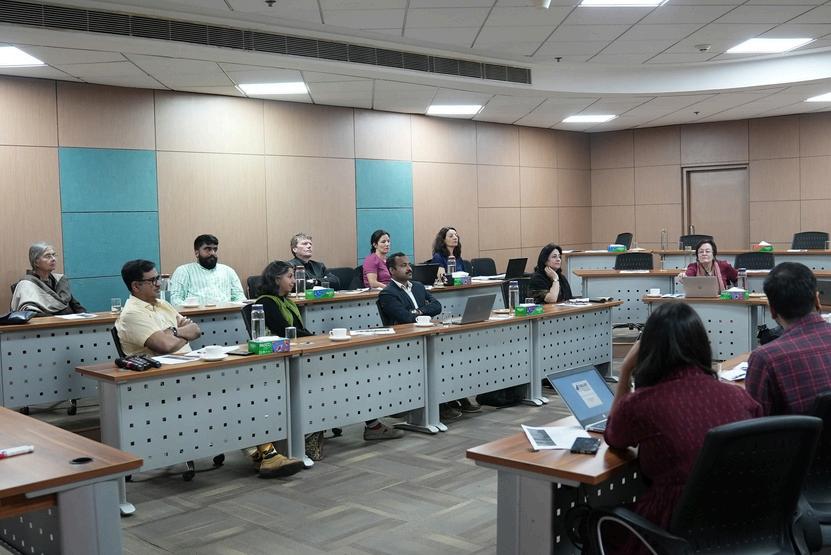
3. Law, Politics, and Theory- Part 2: Talking about the changing experience of dwelling practices by Char dwellers in Asam, Dr. Bhargabi Das highlighted the insensitive assemblage of lower-level bureaucracy, majoritarian politics, climate change discourse, and limitations of modern citizenship, and its impact on the lives of precarious citizens like Char dwellers. Dr. Sandali Thakur, while discussing the topic of violence and womanhood, emphasized the need to find a possible shared space between feminist intervention and the state's biopolitics. In the end, Prof. Andreas Pettenkofer revisited the topic of social movements and inequality and emphasized the need for theory from the South.
4. Exploring Culture, Literature, and Theatre: As the last hours of the day set in, the discussion on Culture, Literature, and Theatre was well-set in the fourth roundtable session. Dr. Anirban Ghosh gave an overview of his ongoing research based on the archival letters and memoirs written and exchanged by Indian and German students in the early 20th century. Dr. Ghosh is looking at different sociabilities that could emerge through reading these past exchanges. Dr. Subhashim Goswami, who also makes theater for children, discussed the anthropological possibilities of new universals by analyzing young artists' artistic expressions and sensorium. Prof. Jorg Gengnagel, on the other hand, talked about the performative aspect of urban culture, which results in different mappings and visualization of the space. His work invests in the newer meanings of collective action in the urban milieu. Dr. Chinmay Sharma looks at, in the context of religion and Urbanity, the telling and retellings of Mahabharta in different genres and times He analyzes urban theatre practices and the politics of these retellings.
The workshop culminated with closing remarks by Prof. Yasmeen Arif, Prof. Martin Fuch, and Antje Linkenbach. These summarized the day's enriching discussions and stressed the significance of continued collaboration and interdisciplinary dialogue
Kumar
Prof. Menah Pratt speaking on the becoming of a scholar-leader
15th February: "Speaks to your mind even if your voice shakes," written over an artifact of mundane life, reminds her of the dire need to intervene in social conversations at every level. Professor Menah Pratt said those words, while speaking about her work and the complexities of living the double life of a scholar and an activist, to a diverse audience at Shiv Nadar University. She emphasized the need to disrupt and challenge the status quo without falling into the trope of opposition, which is already very much pronounced in our society. Prof Pratt proposes using love, compassion, and hope to identify the common thread of humanity that speaks to everyone. Further, she zoomed into the individual process of self-cultivation, which can withstand the pressure of living a life of this double responsibility. Talking about her idea of practicing spirituality to reach her wisdom, which guides her fight for social justice, her words remarkably imply the complex nature of labor an activist-scholar silently puts in to acquire a self that contributes to society




Prof Nayanika Mathur’s talk on her upcoming work
